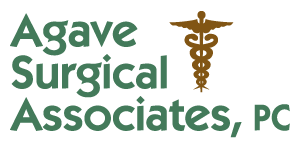Patient Education
General Surgery
General surgery encompasses comprehensive care on many different parts of the body, including "lumps and bumps", breast. stomach, esophagus, small and large intestine, the liver, pancreas and spleen, thyroid and parathyroid glands, and all types of hernias. Surgery may be performed either traditionally, with a longer incision via an "open" technique, or with the newer, more advanced laparoscopic techniques utilizing small, more cosmetic incisions. Our surgeons are trained and have extensive experience in laparoscopic techniques involving the gallbladder appendix, inguinal and ventral hernias, removal of the colon, intestine, spleen, and adrenal glands, and anit-reflux procedures for gastroesophageal reflux (GERD).
Robotic Surgery
Surgical Robotics offer patients the least invasive surgical treatment option available today. Using da Vinci surgical system traditional open surgery can be done laparoscopically, with smaller incisions. Less pain, less blood loss and a faster recovery time are just a few benefits to this approach to surgery.
Vascular and Endovascular Surgery
Vascular surgery typically refers to surgery on the blood vessels throughout the body. Surgery has traditionally utilize incisions to repair these vessels, however today it also involves the use on angiography, or x-rays of the blood vessels, "endovascular" techniques involving stenting of the blood vessels, and lasers to repair blood vessels. Our vascular surgeons are proficient in the use of all these techniques. In addition our vascular surgeons provide the full spectrum of dialysis access for renal failure patients, including fistulas, grafts, and peritoneal dialysis catheter placement.
Scheduling patients for surgery
Scheduling elective surgery may take up to 7 days. Most insurance companies require prior authorization or pre-certification before we can proceed in scheduling surgery. Once authorization or pre-certification is obtained from your insurance company our surgery schedulers can then coordinate the schedules of the surgeon, an assistant surgeon (if necessary), the anesthesiologist (if necessary) and the hospital's operating room to schedule a date and time.
Once your surgery has been scheduled you will be contacted by our surgery schedulers. You will be given the date and time of surgery; instructions on where and when you need to be at the hospital or surgery center; specific instructions on medications; instructions on when not to eat or drink anything and any other instructions that may be important to the type of surgery you are having.
If you are contacted by the hospital before you hear from us please call our office to confirm the information the hospital has given to you. We may have additional information you need to know.
Our office will make every effort to schedule your surgery in a timely manner.

